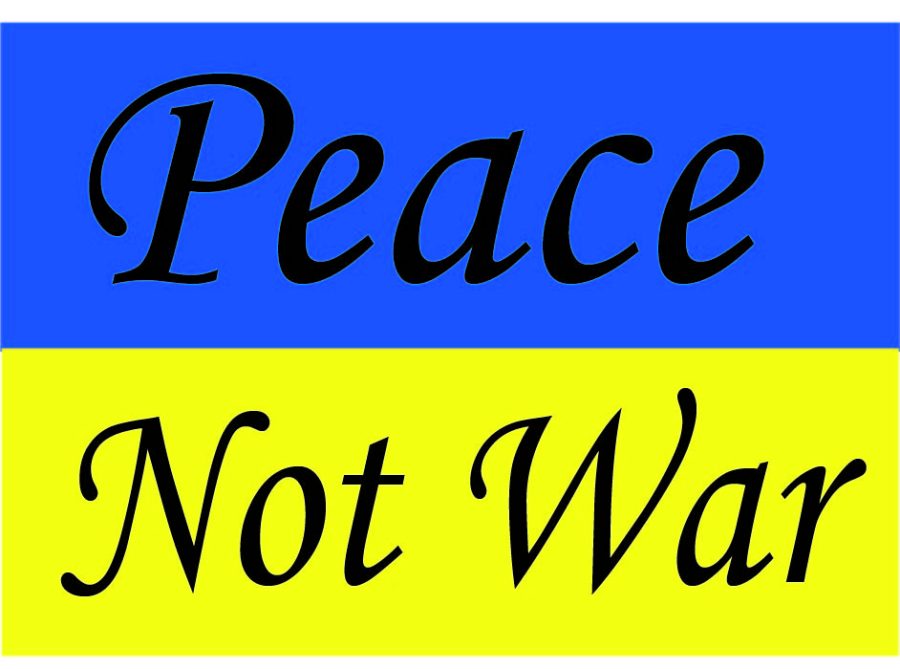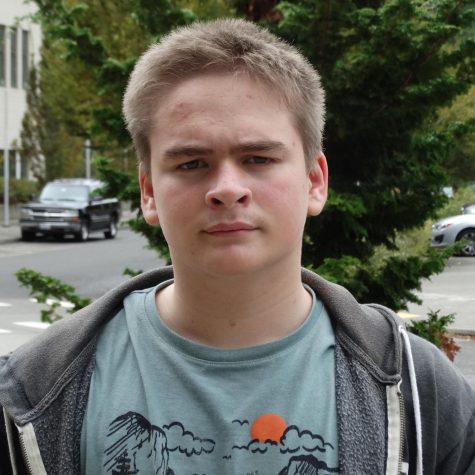Anti-War Protests in Russia Continue Despite Immense Restrictions
May 18, 2022
Through all of the countless bans, punishments, and imprisonment, Russians still continue to protest the inexcusable actions of their country’s military to try and make some sort of impact on the horrible conflict.
The Russia-Ukraine conflict, which has been referred to as a “full-scale” war in western media, is still referred to as a “special operation” in Russia as politicians attempt to hold any and all information from their citizens. They have attempted to close sources of reliable information to their citizens by banning any negative media about the conflict in an Orwellian fashion. NPR noted as early as March 5 in their article that any attempt to even call the current events a war, “Journalists could be jailed for up to 15 years. Russian officials assert it’s false to call their military operations in Ukraine a war or an invasion.” It is frightening to see how quickly this came. Just a few short months ago, Russians could go almost anywhere with a visa and say almost anything, but that has all gone in just a few relatively quick actions by Putin. Free speech dies before our very eyes, millions of people silenced, their voices ripped from them as the rest of the world watches on in horror. The news reporting on almost anything that does not agree with the Russian government is punishable with “with up to 15 years in jail for spreading ‘fake information’ about the Russian military and its operations, as well as actions of state agencies abroad. ‘Fake information’ is regarded anything that does not comply with the official version of events. This criminalizes public opposition to or independent news reporting about the war in Ukraine,” according to Compass News. Information is withheld from the Russians through these media bans and information is withheld from the outside world as Russian news sources cannot report on any action that civilians take inside of the country. “The screws are being fully tightened – essentially we are witnessing military censorship,” Maria Kuznetsova, OVD-Info (A protest monitoring service’s) spokeswoman, said by telephone from Tbilisi.
Despite these bans, the people’s fight goes on. The protesters have seen endless opposition by the government, but their effort continues. According to Compass News “The first anti-war demonstrations in Russia took place already on 24 February with around 2 thousand participants in Moscow and 1 thousand in Saint-Petersburg. Protests also occurred in other large Russian cities, such as Yekaterinburg, Chelyabinsk, Nizhny Novgorod, Novosibirsk, and Perm.” By the end of the evening of that day, according to the OVD-Info , “There were 1,800 arrests in 58 cities, of which around 1,000 were carried out in Moscow. Protests continued the following days bringing the total number of arrests to 3,000 people throughout the country by 26 February.” Though information on these protests is often constricted by Russian media, they are still occurring in almost every Russian city as thousands of people enter the streets with signs and posters to march. Reuters, a world news company, reports that “dozens of protesters in the Urals city of Yekaterinburg were shown being detained. One protester there was shown being beaten on the ground by police in riot gear. A mural in the city showing President Vladimir Putin was defaced.” Just one protest saw thousands of arrests, but they have not stopped. Brave Russian people continue to march out into the streets and protest, ignoring the bans and the inevitable punishment that will fall upon them when they are caught. Senior Vasiliy Kovalenko sympathizes with the protesters, stating that he would likely protest himself if something similar to this happened in the United States.
It is also important to note the incredible decrease in scale of the protests as the bans have severely affected the mindsets of people previously protesting. Compass news notes that the protests were much larger before: “Bolotnaya Square in Moscow on 10 December 2011 with 25 to 60 thousand participants according to different accounts; the rally at the Academician Sakharov Avenue in Moscow with 28 to over 100 thousand people; and the “March of the Millions” taking place on the Bolotnaya Square in Moscow on May 6 2012, the day before Putin’s inauguration as President for his third term with around 20 thousand participants.” Even with the decrease in numbers, the very fact that protests continue is extremely impressive, risking 15 years of one’s life to send a message is heroic and noble no matter how many people do it. We can only hope that there will be an impact. Sophomore Caleb Delgano states that he “hopes that the people will see change in the near future.”
Regardless of any impact that they make, it is important to remember that Russians will continue to protest no matter what happens, and that their spirit will not break until the unwanted war finally ends.




